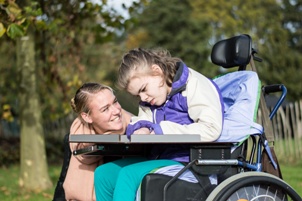 Connecting with other parents of children with cerebral palsy may be invaluable to you. These connections can provide you not only with practical and useful information but also with understanding and companionship.
Connecting with other parents of children with cerebral palsy may be invaluable to you. These connections can provide you not only with practical and useful information but also with understanding and companionship.
You can often start looking for connections within the cerebral palsy community by asking your child’s pediatrician, local hospital, or your child’s physical therapists for recommendations. Sometimes playgroups or parent groups form at local hospitals or through physical therapy providers. If one does not yet exist in your community, you can think about starting one as a way to meet other parents.
Additionally, you may decide to get involved with the statewide or national cerebral palsy communities.
Kentucky Cerebral Palsy Support Groups
In Kentucky, you may explore various opportunities, including:
- The Arc of Kentucky. While not limited to individuals with cerebral palsy, this volunteer support organization does provide services to adults and children with cerebral palsy.
- Kentucky Special Parent Involvement Network (SPIN). Like The Arc, SPIN is not just for parents of children with cerebral palsy. However, you may find the resources and the community that you are looking for through SPIN’s various events and resources.
Virtual Cerebral Palsy Community
You can also get involved with the cerebral palsy community nationally by:
- Joining a Facebook group that meets your needs. Many different types of open and closed Facebook groups exist to support parents of children with cerebral palsy. You can search and join as many groups as you’d like so that you can find the right communities for you.
- Following the social media accounts of a national organization such as United Cerebral Palsy.
Additional groups are available for siblings of children with cerebral palsy and people with cerebral palsy as they become teens and young adults.
We hope these cerebral palsy resources are helpful to you, and we encourage you to share them with anyone else you know who loves, cares for, or treats children with cerebral palsy.
Related Links: